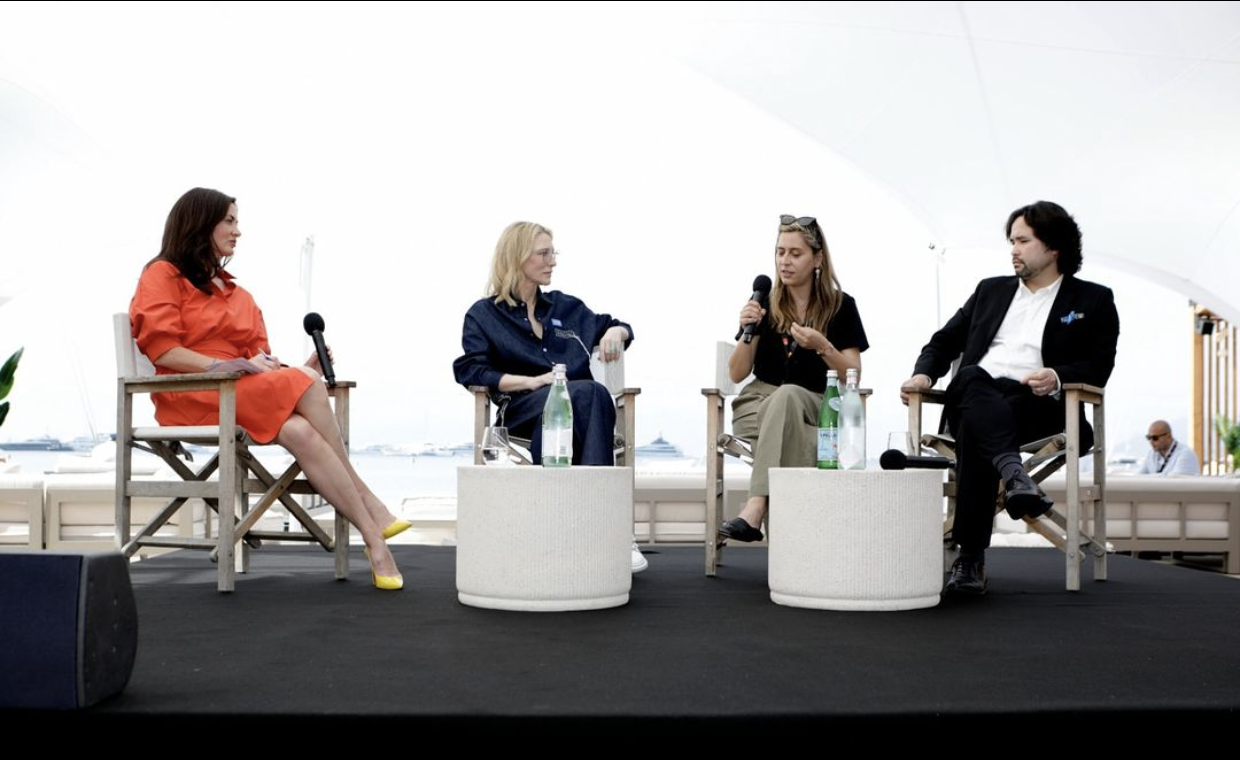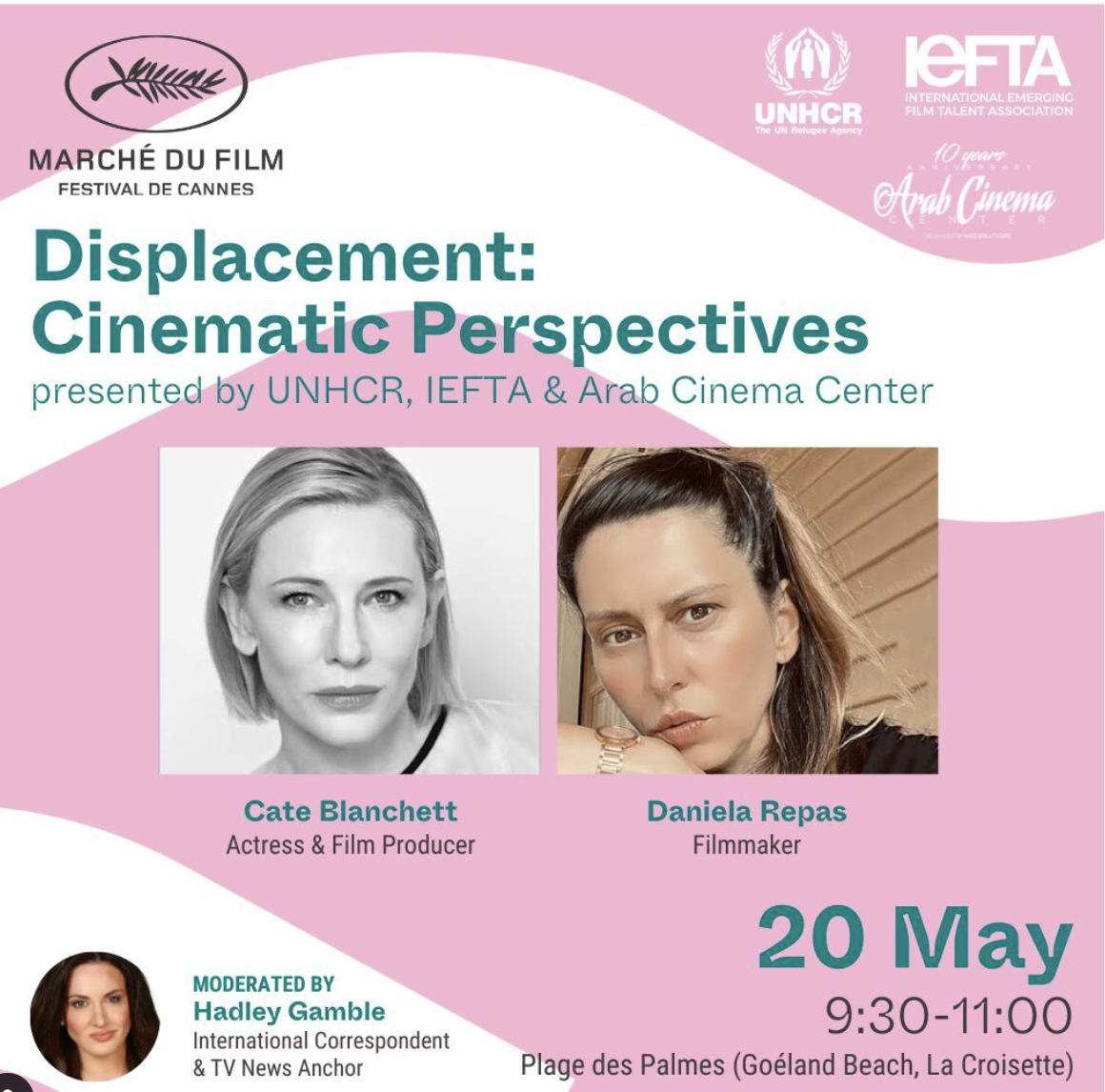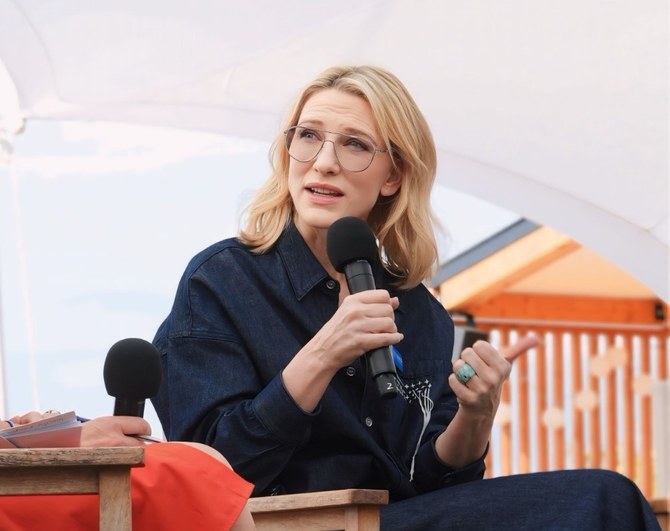Amidst the dazzling lights, extravagant gowns, and star-studded red carpets of the Cannes Film Festival (Instagram), Cate Blanchett (Instagram), the ever-glamorous actress and humanitarian, took a moment to champion a cause far more profound than the latest cinematic trends. Stepping away from the glitz and glamour, Blanchett used her platform to deliver a powerful message at a panel titled “Displacement: Cinematic Perspectives”, advocating for a shift in the film industry’s narrative focus.
Blanchett, a passionate advocate for refugees, spoke as a UNHCR goodwill ambassador, a role she has held since 2016. Her mission was clear: to shine a spotlight on the untold stories of refugees, individuals forced to flee their homes due to war, violence, or persecution. With millions around the world displaced, Blanchett argued that their experiences are not only a potent source of storytelling but that they are also “incredible and inspiring.”

The actress expressed her concern about the film industry’s tendency to create narratives that homogenize experiences, often leaving refugee stories on the cutting room floor. This exclusion, she emphasized, fuels the dangerous practice of “othering,” perpetuating a one-dimensional view of the world. Blanchett’s message to filmmakers was a clarion call for inclusivity: broaden your horizons, collaborate with diverse voices and backgrounds, and weave a richer tapestry of stories that reflects the complexities of our global reality.
But Blanchett’s advocacy extended beyond simply urging filmmakers to tell more refugee stories. She also challenged the industry’s resistance to change, drawing a thought-provoking parallel between the current film landscape and the decline of the old studio system. In the past, studios churned out repetitive films, leading to their downfall. Is Hollywood sleepwalking into the same trap? Blanchett seemed to suggest so, particularly when she criticized streaming services for rejecting compelling stories solely because they don’t fit some narrow “mandate”, despite the films’ potential and unique stories. She recalled a meeting where she pitched a story to a streaming service, only to be met with a response that essentially boiled down to: “We’ve already got plenty of stories like that.” Blanchett’s response was sharp and to the point: “Are you a dickhead? You’ve got no other story like this on your slate. Don’t you want a dynamic slate?”

Cate Blanchett’s appearance at Cannes transcended the typical red-carpet spectacle. It was a powerful call to action, urging the industry to embrace inclusivity and recognize that the most captivating narratives often reside in the most unexpected corners of the world. With her unwavering influence and commitment to social justice, Blanchett is fighting for a long-overdue shift in the way Hollywood portrays displacement and the human spirit that endures through it.
Cate Blanchett is not just pushing for more refugee stories; it’s about giving a voice to those who have been silenced, challenging stereotypes, and fostering empathy. It’s about creating a more inclusive and representative film industry that reflects the diversity of our world. And it’s about reminding us that behind every refugee story is a human being with a unique and valuable perspective to share.
For more stories of art and culture, visit our dedicated archives.












